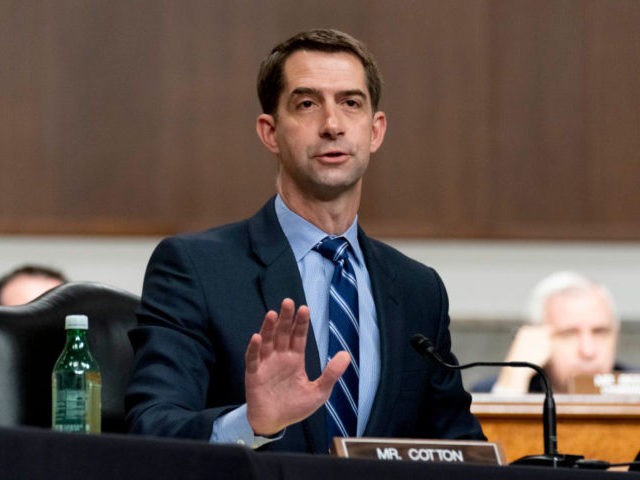A group of Republican Senators created a Trump-era inspired bill aimed at protecting energy infrastructure from foreign adversaries after President Joe Biden allowed protections to expire in May.
On Thursday, Senators Rick Scott (R-FL), Marco Rubio (R-FL), Tom Cotton (R-AR), and Roger Marshall (R-KS) announced the introduction of the Protect American Power Infrastructure Act which would prohibit the use of bulk-power equipment produced by foreign adversaries or by those under their influence.
“In recent years, America’s strategic competitors have repeatedly infiltrated and attacked our nation’s critical infrastructure,” Rubio said. “Recent attacks on our nation’s energy supply chains, such as on the Colonial pipeline, demonstrate the urgency with which we must take decisive action to limit vulnerabilities to key infrastructure like our energy grid.”
Former Deputy Director of Counterintelligence at the Department of Energy (DOE) Charles Durant said in 2019 that there had been more than 200 Chinese transformers to come into the U.S. energy sector in the last 10 years.
“Before that, there were zero,” he said, according to Newsweek.
Former President Trump, who is known for his tough-on-China approach, issued an executive order May 1, 2020, called “Securing the United States Bulk-Power System.” The order prohibited the use of electrical equipment “designed, developed, manufactured, or supplied, by persons owned by, controlled by, or subject to the jurisdiction or direction of” foreign entities such as China. Under that order, Trump’s energy secretary, Dan Brouillette, issued a prohibition against U.S. utilities using Chinese electrical equipment.
On his second day in office, President Joe Biden suspended Trump’s executive order for 90 days when he issued his own executive order called “Protecting Public Health and the Environment and Restoring Science to Tackle the Climate Crisis.” Trump’s order, E.O. 3920, officially expired on May 1, 2021. The prohibition order was also revoked on April 19, 2021.
On April 20, the Department announced a new request for information (RFI). The Secretary of Energy and the Director of the Office of Management and Budget must decide if Trump’s executive order needs replacing. In the meantime, the Department of Energy lacks the protections of Trump’s stringent order.
“By allowing Chinese equipment to be used in critical U.S. power infrastructure, the Biden administration is leaving a back door open for communist saboteurs,” Cotton said.
According to lawmakers, the bill, also called S.2269, would:
- Prohibit suppliers of power to American defense critical electric infrastructure from using equipment owned, controlled, operated or influenced by, or otherwise connected to, a foreign adversary.
- Provide the Secretary of Energy the authority to pre-approve energy vendors and equipment which are deemed secure.
- Require the Secretary of Energy to identify existing bulk-power systems, which pose an undue risk on the security or resiliency of the critical electric infrastructure in the United States, and to improve resiliency of those systems.
- Create a process within the federal government for sharing information about infrastructure vulnerabilities and management practices to improve procurement of secure energy equipment.
Former Director of Intelligence Dan Coats compiled the 2019 Worldwide Threat Assessment, which found that Russia, China, and Iran were all capable of launching cyberattacks that “cause localized, temporary disruptive effects on critical infrastructure,” the Hill reported.
“The updated 2021 assessment… found that China still had the ability to “launch cyber attacks that, at a minimum, can cause localized, temporary disruptions to critical infrastructure within the United States,” according to the report.

COMMENTS
Please let us know if you're having issues with commenting.